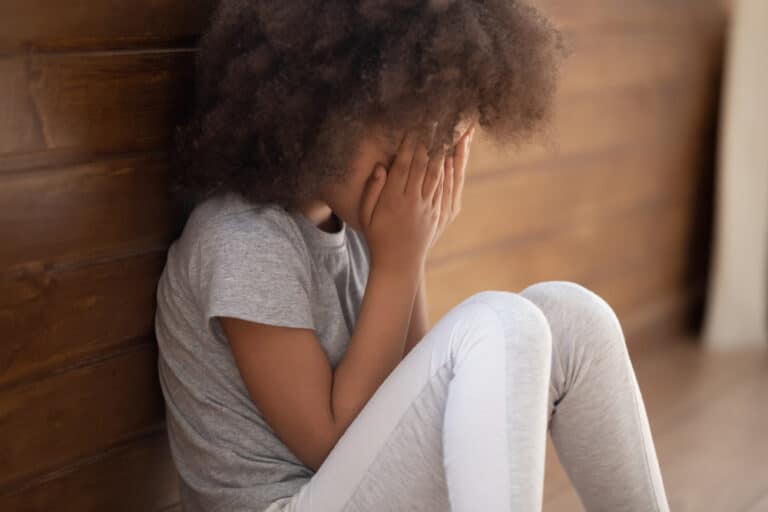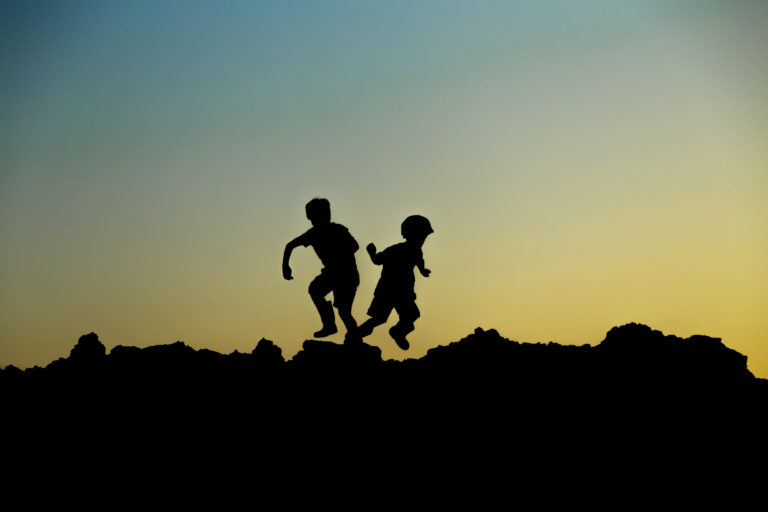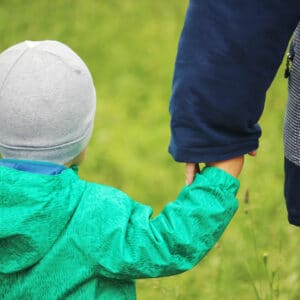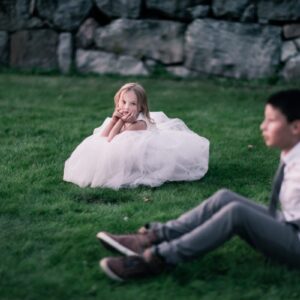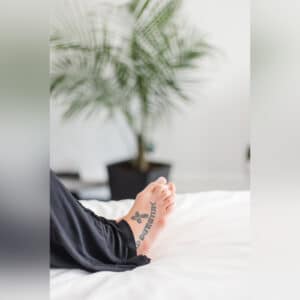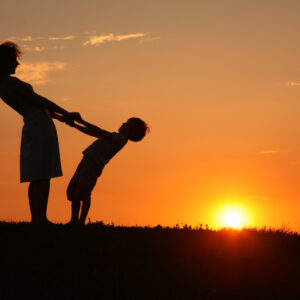As I stood in the middle of a bustling English high street, trying to help my screaming 7-year-old daughter fit her fingers into her new winter gloves, I realized that this scene perfectly captured the sense of trauma that each one of us was carrying.
England was my country. The land where I grew up. Winter gloves were a normal part of my childhood, along with snow, frost, and rainy days.
The fact that my daughter had reached the age of seven without ever needing gloves just highlighted the point that she was not at home here. As I looked up and down the street that used to be so familiar, but where all the shops now were different, it dawned on me that this was no longer my home either.
The truth was that we had left our home in Israel (where I had lived most of my adult life and where my children were born) a week before when the war broke out.
RELATED: I Took My First Breath To the Sound of Gunshots
As we hurried to catch a British government flight out of the country, I asked my children to take off their summer shorts and T-shirts and put on warm clothes, ready for the storms forecasted in London later that night when we were due to arrive.
My daughter screamed as she scrambled to put on her leggings and long-sleeved top. She was scared because of the war and stressed by suddenly having to leave home in a hurry. I shouted at her for screaming. Our taxi was waiting, and we had no time to lose.
Now, a week later as she went into a panic trying to fit her fingers into her gloves, I knew she was reliving those frantic moments before we left the house.
I have studied and written about trauma for years. I have taught others how to help children navigate transitions and complex emotions. But at that moment, as I stood on a cold British street, wrestling with my daughter and a pair of gloves, I felt totally out at sea.
How could I begin to comprehend what had happened? How could I integrate all these different splinters into a rounded, cohesive life story? How could I help my children make sense of all the suddenlys? Where was home now?
I knew enough to know these questions would take time to find their answers. It takes a few hours to board a plane and escape a war, but it takes much longer to process and make peace with suddenly changed realities. You just can’t rush these things.
I so badly wanted to put all the parts of my life back together. I wanted everything to make sense again. But really, what I needed to do was to step back, take a deep breath, and allow the dust to slowly settle.
A lot like putting on a pair of gloves. Slowly, calmly moving each finger into place. The more stressed we are as we hurry to find the right holes for our fingers, the more muddled the gloves become.
RELATED: We Read Rainbow Fish While I Waited to Die
At that moment, standing outside on a cold street, seeing my daughter’s distress, I knew exactly what I needed to do.
I bent down to my daughter’s height and gave her the biggest hug. I whispered in her ear that I loved her very much and that I was so, so proud of her.
In the light of all the weighty issues that lay before me, this little hug and these whispered words may have seemed insignificant. But as I felt my daughter’s body relax, I knew I had just done the most important thing in the world.
Trauma research shows that those who make it out to the other side of dark places with the least long-term emotional damage are those who feel like they are not alone. When we are faced with sudden, distressing events, the best thing we can do is to stick together.
Stooped down, hugging my daughter in the cold, I still had no answers to all the big questions. The road ahead looked just as uncertain as ever. But yet, something had changed. As my daughter successfully slipped her fingers into her glove, I was filled with an assurance that somehow, in some way, and however long it took, everything else would find its place.

If you liked this, you'll love our book, SO GOD MADE A MOTHER available now!
Order NowCheck out our new Keepsake Companion Journal that pairs with our So God Made a Mother book!
Order Now





